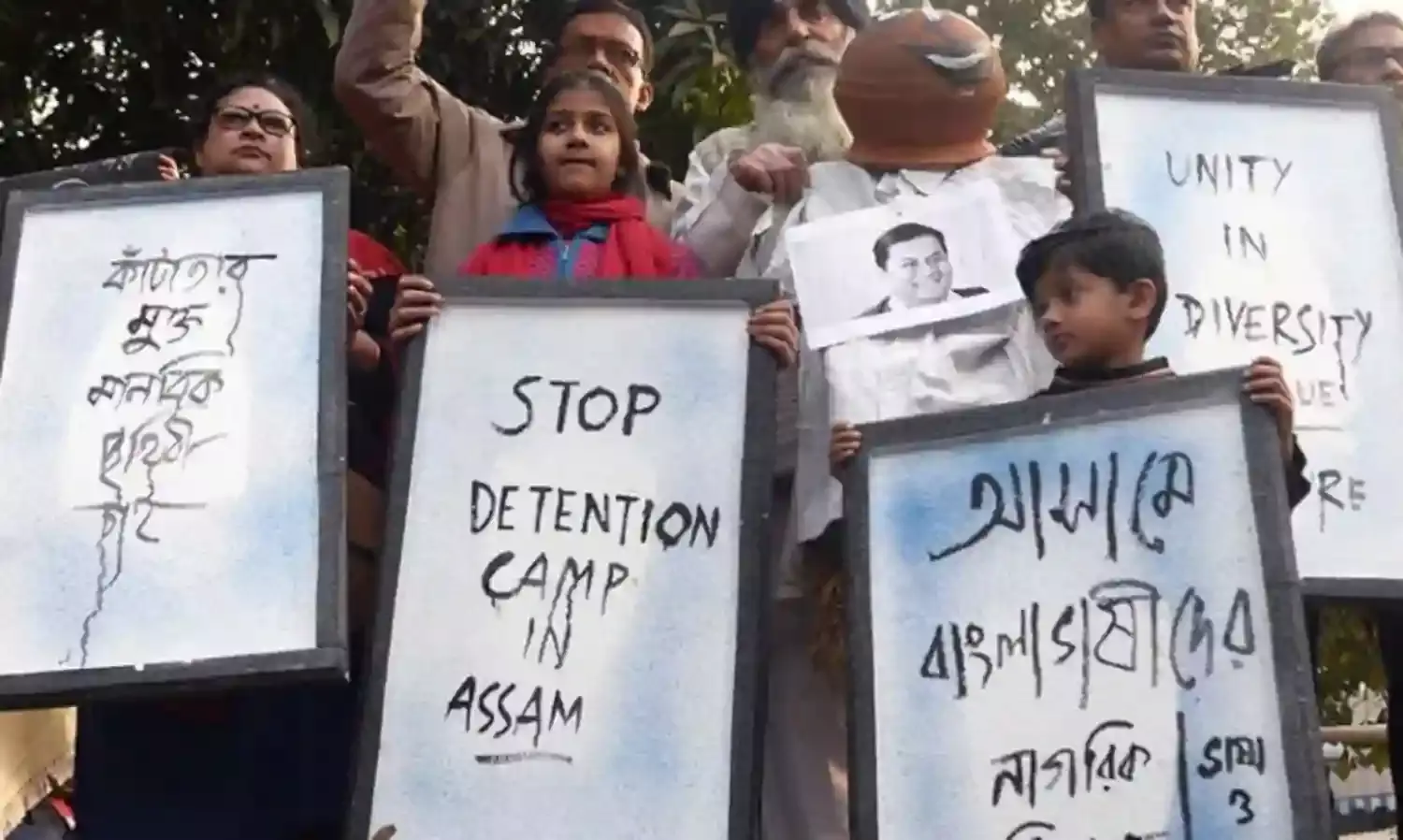‘Citizenship Isn’t Just A Status’ - Lawyers Step In To Help NRC Excluded
‘Citizenship Isn’t Just A Status’ - Lawyers Step In To Help NRC Excluded;

“Citizenship isn’t just a status. It is essentially what the philosopher Hannah Arendt said, “It is the right to have rights,”” said Darshana Mitra, a founding member of Parichay, an organisation set up to provide legal assistance to people excluded from the National Register of Citizens (NRC) in Assam.
Officially launched on 1 October, Parichay, through collaborations with law schools, aims to work with lawyers and paralegals on ground to help those excluded in filing appeals before the Foreigners Tribunals. The NRC list published on 31 August excluded over 19 lakh individuals, who are now required to appeal before the Foreigners Tribunals within 120 days of receiving the rejection order.
The brainchild of the three founding members—Darshana Mitra, Mohsin Alam Bhat and Anup Surendranath—Parichay was envisioned as a means of addressing the consequences of this citizenship determination exercise. Surendranath is an Assistant Professor of Law at National Law University, Delhi. Bhat, having completed his Masters at Yale Law School, is currently an Assistant Professor of Law at Jindal Global Law School, O.P. Jindal Global University.
Mitra completed her LL.M. from Columbia University with a focus on Citizenship, Migration and Nationality laws. It was a common vision to provide effective legal aid to those excluded from the final list that brought the three together. “It was a lot of conversation but due to the urgency of the matter we also moved fast,” she said.
The organisation’s focus will be on connecting law schools and their resources with lawyers working in Assam who are “overburdened” with work. “We will work with the people through the lawyers. We understand that lawyers and paralegals form the last line of defense here and therefore, their numbers and their strengths need to be bolstered,” Mitra told The Citizen.
She stated that seeing how law schools in the US are deeply involved in “questions of citizenship and access to justice” made her believe this is a model that can be replicated in India as well. However, the sheer number of affected individuals necessitate a collaboration with more than a single law school. “You need potentially a coordinated effort among law schools to come in and address this,” she said.
The other question that confronted the founding members was one of jurisprudence on the matter of citizenship. “I don’t think any law school in India has a course on Citizenship and Nationality laws,” said Mitra. “So what we felt was that it was also important to introduce a pedagogical element to this. And given that you have this enormous citizenship determination exercise that’s happening in Assam, why aren’t law schools talking about it? Why aren’t law schools discussing it?”
Mitra highlighted that the NRC encompasses constitutional questions as well as those on public law and international human rights law. “The fact is that if you look at how citizenship works and how citizenship determination has taken place in the NRC, a lot of it has depended on documentary evidence and the access to documentary evidence,” she said. The NRC requires individuals to produce “legacy data” such as birth certificates to prove their citizenship.
Further, many of the excluded individuals belong to marginalised communities who may not have access to appropriate documentation. “I think what that has done is that it has created a lot of anxiety that if I don’t have the kind of documentation necessary, what’s going to happen to me?” she told The Citizen.
The citizenship question however, is much larger, expanding into the territory of rights. “Stripping somebody of their citizenship effectively strips them of their identity in the eyes of the state,” said Mitra. It is an individual’s citizenship status that entitles them to certain rights such as those enshrined under Article 15 and Article 19 of the Indian Constitution. “Apart from Article 21, which is the right to life, all other rights really accrue from the citizenship status,” Mitra explained.
According to her, Parichay realises that an identity before the state is “vital” for one to access human rights and entitlements of any nature, not only in India but across the world. “We want to be able to make sure that nobody is deprived of this identity and at least you have access to all necessary legal aid for you to be able to effectively contest and appeal against your exclusion from this identity,” she said.
Parichay plans to work out of its head office in Assam by the end of November. Meanwhile, the organisation has received an overwhelming response from students, their “core group”, with applications flooding in. “It has been, I have to say, really heartwarming for me personally, to see so many applications coming from students which tells you that people are interested and people care about what’s happening in Assam,” stated Mitra.
Parichay has also received a positive response from many lawyers, who have offered to help the organisation in meeting its objective of providing effective legal aid to those grappling with the prospect of filing appeals within the stipulated time of 120 days.

